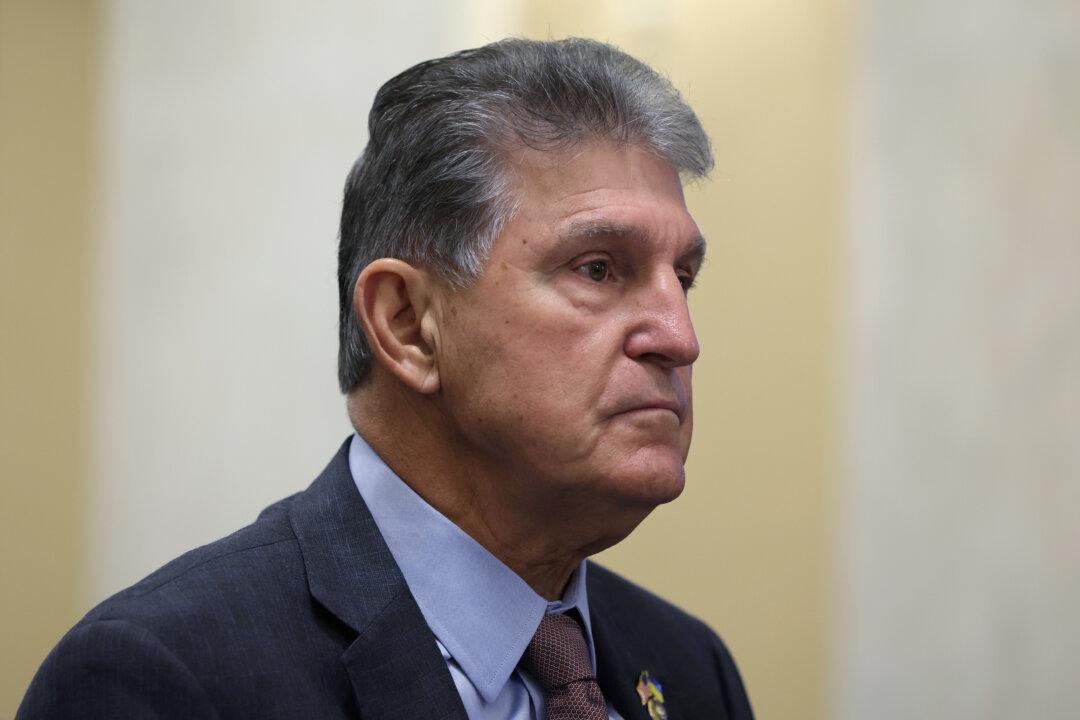Sen. Joe Manchin (D-W.Va.) is warning other members of his party not to back out of a compromise climate deal that helped Democrats pass the $700 billion Inflation Reduction Act.
Specifically, Manchin agreed to lend his support to the bill—crucial for the bill’s eventual passage through the evenly divided Senate—in exchange for consideration at a later date of separate legislation that would grant some concessions to fossil fuels and would cut down on regulations of the industry.





